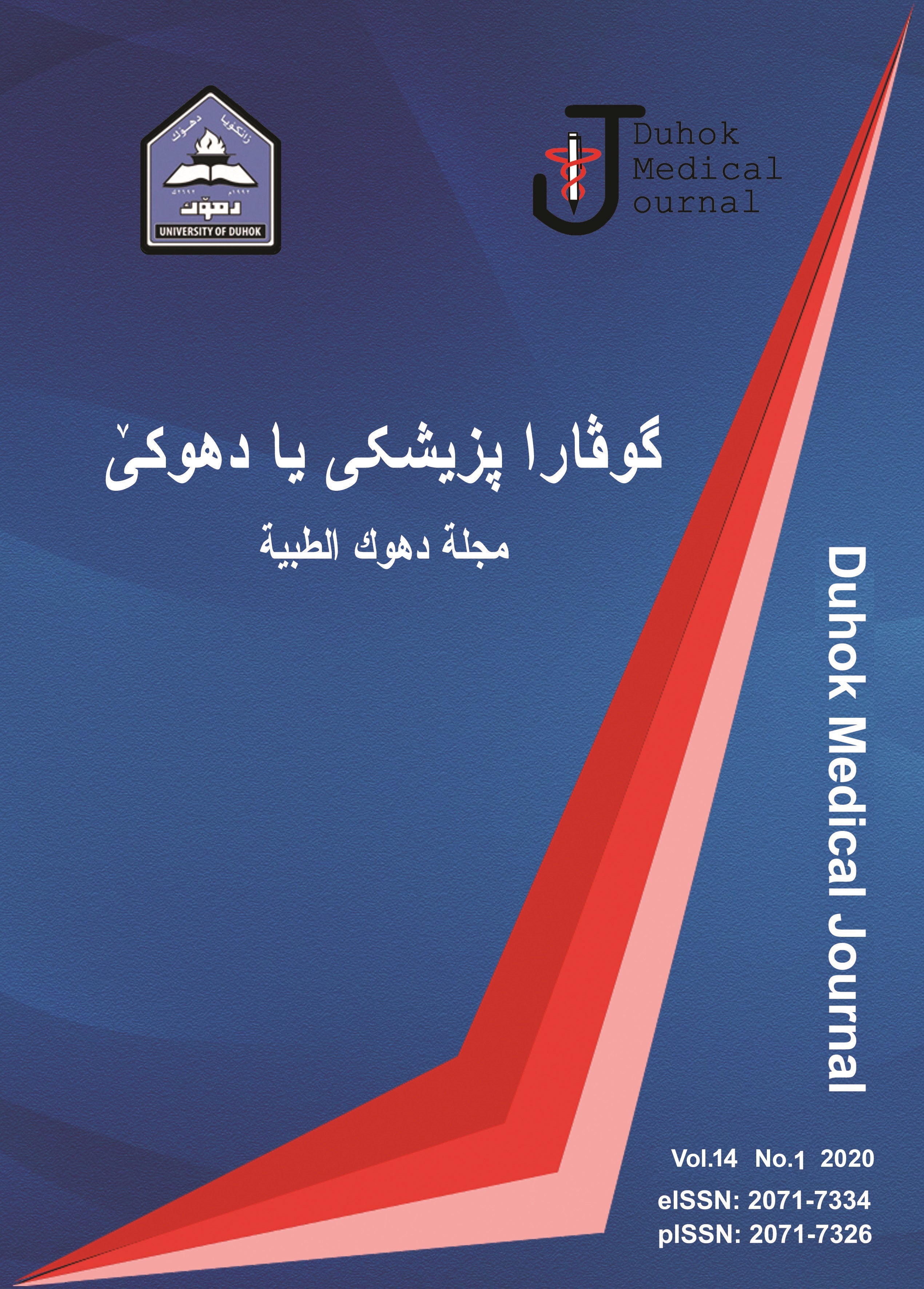CORRUPTION AS A CONTAGIOUS PSYCHOSOCIAL DISORDER, A CONCEPTUAL ANALYSIS
Abstract
https://doi.org/10.31386/dmj.2020.4.1.3
Background: Corruption is defined as the abuse of entrusted power for private gain. It is a world-wide phenomenon, particularly in the developing societies. It has been mentioned as a cause of destruction of many empires and powerful states in the history. No effective evidence-based prevention or treatment has been identified, yet. The objective of this study is to describe a conceptual framework using psychosocial analysis based on current scientific theories to explain corruption as a contagious psychosocial disorder to be correctly diagnosed, prevented and treated.
Methods: This is a theoretic conceptual analysis describing corruption for the first time in terms of contagious psychosocial disorder. The sample concerns structural and functional positions at the Child Mental Health Center (CMHC) in the city of Duhok, Kurdistan region of Iraq (KRI) during December 2018 - February 2019.No experimental or clinical data are included. Accordingly, a package of Psychosocial Anti-Corruption Tools (PACT) is presented as an intervention to replace identified actions of corruption.
Results: Specific diagnostic criteria, such as: Illegal or un authorized gain, more than one salary, unjustified power position…etc., are found to classify corruption as a contagious psychosocial disorder according to current theories concerning a etiology, pathogenesis, clinical picture, consequences, prevention and treatment. This is the first pilot project that has been started at a governmental organization.
Conclusions: Corruption can be Hypothesised as a contagious psychosocial disorder to be tested in further rigorous research in other cultures, societies, and countries where corruption is prevailing.
Downloads
References
2. Hanna VS, and Ahmad A. Corrected and republished: Suicide in theKurdistan Region of Iraq, state of the art. Nordic J Psychiatry. 2013; 67(2):140-144.
3. Alwerthan TA, Swanson DP, and Rogge RD.It's better to give than to receive: Psychologicalneed satisfaction mediating links between wasta (favouritism) and individuals' psychological distress. Int J Psychol. 2018; 53 Suppl. 1:11-20.
4. Pasternak J. Corruption. Einstein (Sao Paulo). 2017; 15(3):11–12.
5. Paschke A, Dimancesco D, Taryn V, Kohler JC, and Forte G. Increasing transparency and accountability in national pharmaceutical systems. Bull World Health Organ. 2018; 96(11): 782–791.
6. Hanf M, Van-Melle A, Fraisse F, Roger A, Carme B, and Nacher M. Corruption kills: estimating the global impact of corruption on children deaths. PLoS One. 2011;6(11):e26990. [DOI: 10.1371/journal.pone.0026990] [PMC free article] [PubMed]
7. Muldoon KA, Galway LP, Nakajima M, Kanters S, Hogg RS, Bendavid E, et al. Health system determinants of infant, child and maternal mortality: a cross-sectional study of UN member countries. Globalization and Health. 2011; 7:42.
8. Vian T. Review of corruption in the health sector: theory, methods and interventions.Health Policy Plan. 2008; 23(2):83-94.
9. Mayor S. Peptides that form amyloid plaques in Alzheimer's may be transmissible, study finds. BMJ. 2015 Sep 9; 351: h4831. doi: 10.1136/ bmj.h4831.
10. Montgomery E, Just-Østergaard E, and Jervelund SS. Transmitting trauma: a systematic review of the risk of child abuse perpetrated by parents exposed to traumatic events.Int J Public Health. 2018 Dec 1. doi: 10.1007/s00038-018-1185-4. [Epub ahead of print].
11. Lytken Larsen CV, Curtis T, Bjerregaard P. Gambling Behavior and Problem Gambling Reflecting Social Transition and Traumatic Childhood Events Among Greenland Inuit: A Cross-Sectional Study in a Large Indigenous Population Undergoing Rapid Change. Journal of Gambling Studies. 2013; 29(4): 733–748.






